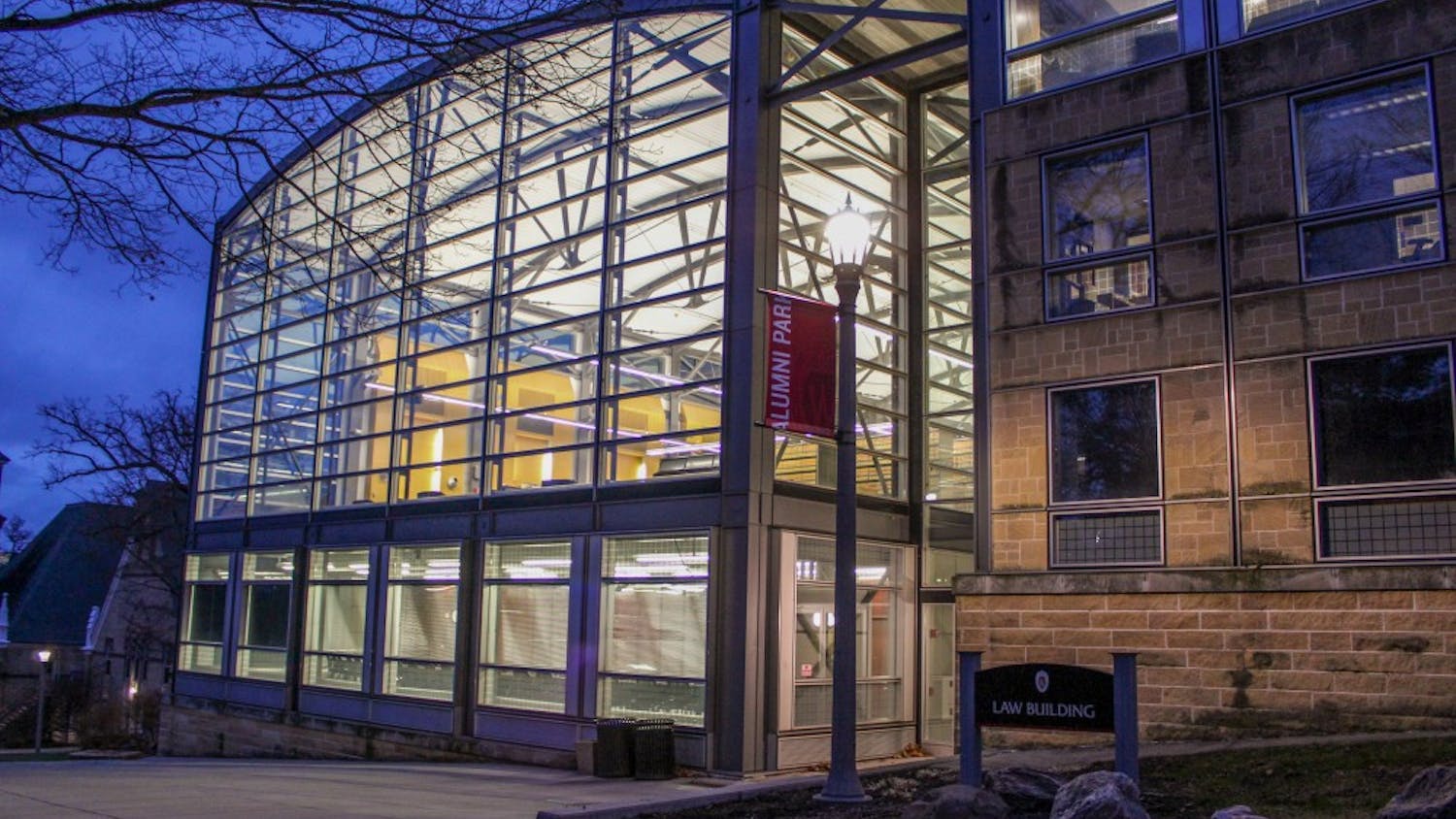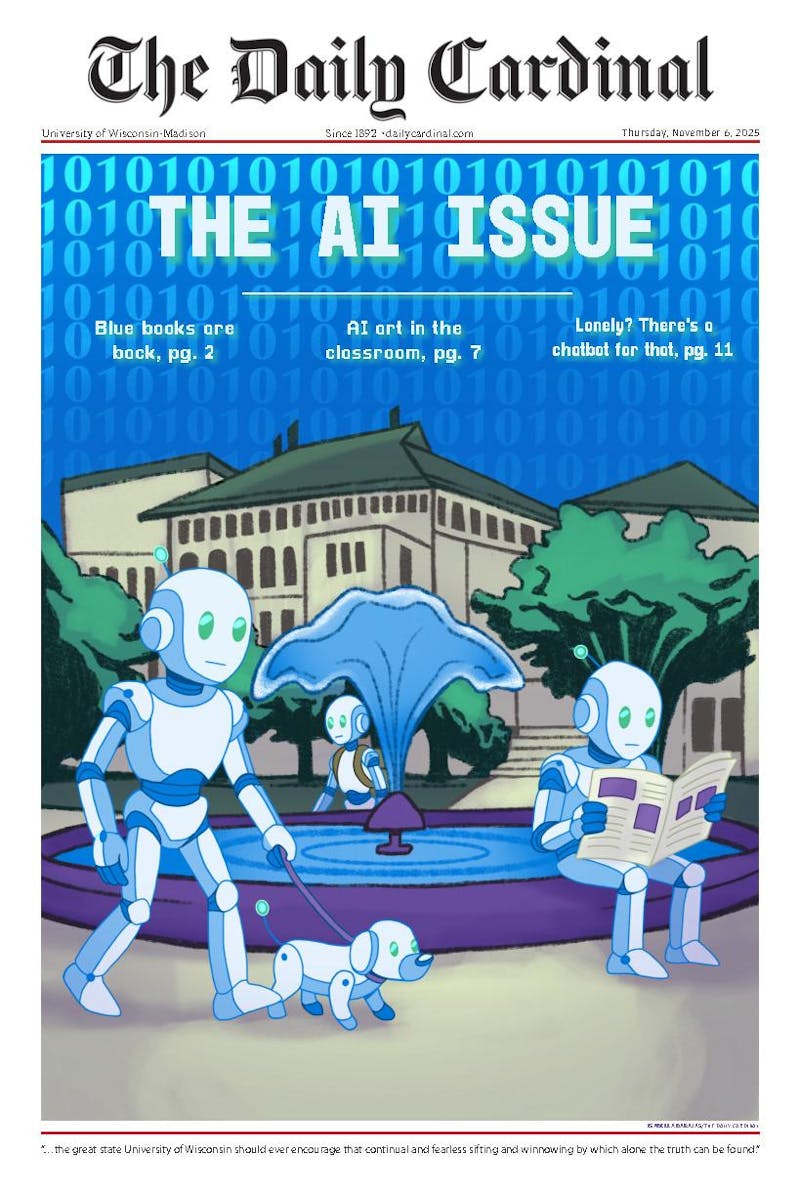Coffee has long been both the vice and savior of millions. College students often turn to a cup o' joe, or a Starbucks grande Mocha Frappuccino for an energy jolt when cramming for midterms, and the addiction usually lasts a lifetime. Madison is a haven for coffee lovers, with dozens of coffee shops and countless other outlets.
Throughout the past few decades, health professionals demonized coffee due to alleged adverse health effects. Caffeine, a known stimulant, was said to increase blood pressure, thus increasing risk of hypertension and heart disease.
Experts also accused coffee of causing a decrease in bone density, increasing the odds of fractures and breaks. In the past, some associated coffee with increased cancer risk, though no conclusive studies have been done.
So what is a sleep-deprived college student to do? With exams and research papers looming, not to mention jobs, applications and the occasional hangover, does one really need to avoid the invigorating goodness that is a steaming mug of brew?
Recent studies suggest no. Coffee does not pose any serious health risks, and apparently may even provide health benefits.
According to the Harvard Health Letter, released by the Harvard Medical School, results from long-term studies show coffee may not increase the risk of high blood pressure over time. The New York Times recently reported on Iowa Women's Health Study providing evidence that drinking one to three cups a day may actually reduce risk, with 24 percent of the study participants lowering their odds of developing cardiovascular disease.
No need to fear bone loss, either, as no major effects on calcium absorption or excretion have been discovered. Adding a few tablespoons of milk to the drink can easily combat any adverse effects on bone health, says Dr. Robert Heaney of Creighton University.
Even though no studies have provided irrefutable evidence linking coffee consumption to cancer, some studies claim it could actually reduce risk. According to the Associated Press, a Japanese study of over 90,000 people found that people who drank coffee daily or nearly every day have half the liver cancer risk of those who never drink coffee.
Additionally, coffee consumption does not appear to have any connection to the development of pancreatic, kidney or breast cancer, dismissing earlier concerns.
The Journal of the American Medical Association concluded last year that habitually drinking coffee might decrease risk of developing Type II diabetes. As of now, the exact reasons are unknown, but many believe it stems from antioxidants present in the coffee bean. These antioxidants are responsible for keeping cell damage at bay. Chlorogenic acid probably plays a key role as well, as it has been proven to decrease glucose concentrations in animals.
Caffeine in coffee also raises resting metabolic rate, which could have an effect on lowering blood sugar, preventing diabetes. However, no evidence has linked coffee consumption to weight loss, despite modest increases in metabolism. Weight gain may actually occur in those who regularly drink sugary coffee drinks topped with foam, whipped cream and chocolate shavings.
Baristas and novices alike know the most important reasons to take a coffee break include mood enhancement, increased energy and improved ability to concentrate.
I love coffee,"" UW-Madison sophomore Ruth
Ohlrogge said. ""I probably drink about two cups a day, and I notice that I feel more alert when I drink it. I get headaches if I don't.""
UW-Madison sophomore Laurel Tiedemann, on the other hand, found coffee to be more hurtful than helpful.
""I kind of weaned myself off,"" Tiedemann said. ""I just get jittery and anxious when I drink it. I'm getting more sleep now.""
Nonetheless, disease prevention does not seem to be reason enough to start.
""The evidence is that for most people without specific conditions, coffee is not detrimental to health,"" says Dr. Rob Van Dam in the Harvard Health Letter.
Although people shouldn't increase their coffee intake to lower their risk of disease, Van Dam doesn't think people need to avoid it completely.
""If people enjoy drinking it, it's comforting to know that they don't have to be afraid of negative health effects,"" he says.
Coffee does not seem to pose any serious risks, and may even provide some benefits, but Tiedemann plans to continue living a caffeine-free lifestyle.
""Sometimes if I'm really tired and need to study I drink coffee, but otherwise I try to avoid it,"" she said. ""I don't think I'll ever drink it regularly, but on occasion I guess it can't be that bad.""






